-

Sep
23
Rethinking Methane from Animal Agriculture: ASAS Speaker Frank Mitloehner at EAAP
Predicting how greenhouse gases can warm the planet is critical to finding short- and long-term solutions to global warming. At the European Federation of Animal Sciences meeting in Porto, Portugal, September 5-9, 2022, ASAS member, Frank Mitloehner from the University of California – Davis, discussed why we should rethink how methane from animal agriculture impacts global warming.
Read more
-

Sep
23
Effective Nutritional Strategies to Mitigate Enteric Methane in Dairy Cattle: ASAS Member Alex Hristov at EAAP
Research over the past decade have provided critical information on the factors that drive enteric methane emission in ruminants. At the European Federation of Animal Sciences meeting in Porto, Portugal, September 5-9, 2022, ASAS member, Alexander Hristov from Pennsylvania State University focused on nutritional strategies that can mitigate enteric methane emissions.
Read more
-

Sep
22
Interpretive Summary: Nitrogen excretion from beef cattle fed a wide range of diets compiled in an intercontinental dataset: a meta-analysis
.png?sfvrsn=e5f152d1_0)
Ruminants play a key role in the food system because they can convert fiber-rich plants into highly nutritious food for humans. However, there is a growing concern about livestock production because of its negative environmental impact, mainly due to enteric methane (CH4) emissions but also as a result of N excretion leading to nitrate (NO3−) leaching and ammonia (NH3) and nitrous oxide (N2O) emissions.
Read more
-

Sep
22
Interpretive Summary: Substituting ryegrass-based pasture with graded levels of forage rape in the diet of lambs decreases methane emissions and increases propionate, succinate, and primary alcohols in the rumen
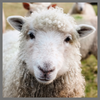
The methane yield (g methane/kg dry matter intake) was 34% lower in sheep fed 100% forage rape and 11% lower in sheep fed 75% forage rape compared to sheep fed 100% ryegrass-based pasture. Sheep fed 25% and 50% forage rape as part of their diet had similar methane yields to sheep fed 100% ryegrass pasture.
Read more
-

Sep
22
Interpretive Summary: Economic analysis of biosecurity adoption in dairy farming: evidence from Ireland
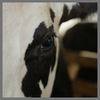
Given the significant negative impact of livestock disease outbreaks on animal and public health, preventing disease spread through biosecurity practices is important. In this article, we assessed the economic implications of the adoption of biosecurity practices on Irish dairy farms.
Read more
-

Sep
22
Interpretive Summary: Transcriptome analysis reveals candidate genes of the synthesis of branched-chain fatty acids related to mutton flavor in the lamb liver using Allium mongolicum Regel extract
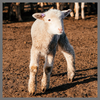
Mutton is characterized by a typical species-related flavor named “mutton flavor,” which is mainly associated with branched-chain fatty acids (BCFAs), such as 4-methyloctanoic acid, 4-ethyloctanoic acid, and 4-methylnonanoic acid. Previous studies demonstrated that Allium mongolicum Regel ethanol extract (AME) reduced the concentration of BCFAs in the muscle and adipose tissues of lambs.
Read more
-

Sep
22
Interpretive Summary: Copy number variation of ZNF280BY across eight sheep breeds and its association with testicular size of Hu sheep
.png?sfvrsn=c0f152d1_0)
The zinc finger protein 280B-like, Y-linked ZNF280BY is a bovid-specific Y chromosome gene, playing important roles in testicular development and male fertility. In this study, we found that the ovine ZNF280BY was highly expressed in the testis and significantly upregulated during testicular development.
Read more
-

Sep
22
Interpretive Summary: The effects of heat stress on milk production and the grazing behavior of dairy Holstein cows milked by an automatic milking system
.png?sfvrsn=9cf152d1_0)
In higher temperature conditions, dairy cows under pasture-based automatic milking systems may experience heat stress, affecting their health and productive performance. In the present study, the relationships between heat stress, measured by the temperature–humidity index (THI), productive traits, and grazing behaviors were evaluated.
Read more
-

Sep
22
Interpretive Summary: How copper can impact pig growth: comparing the effect of copper sulfate and monovalent copper oxide on oxidative status, inflammation, gene abundance, and microbial modulation as potential mechanisms of action
.png?sfvrsn=86f152d1_0)
Copper is a nonrenewable mineral resource that is essential for all biological organisms. After banning the antibiotics, copper has received considerable attention due to its antimicrobial properties that improve performance in animals when fed over the minimum requirement.
Read more
-

Sep
15
Interpretive Summary: Acute stress deteriorates breast meat quality of Ross 308 broiler chickens by inducing redox imbalance and mitochondrial dysfunction

Preslaughter acute stress can cause physiological and metabolic disorders of broilers and lead to deterioration of meat quality and high incidence of pale, soft, and exudative (PSE)-like meat, which block the development of broiler industry. Acute stress-induced imbalance of redox status and insufficient energy supply are important reasons for meat quality reduction.
Read more
-

Sep
15
Interpretive Summary: Weak genotype x environment interaction suggests that measuring scrotal circumference at 12 and 18 mo of age is helpful to select precocious Brahman cattle
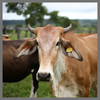
Beef production systems rely on efficient cow-calf operations, that is, farms where the cow herd has a high level of fertility and pregnancies are common. Bull fertility also plays an important role in terms of pregnancy rates.
Read more
-

Sep
15
Interpretive Summary: Genetic architecture of a composite beef cattle population
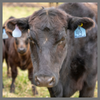
Composite breeds are commonly used in the U.S. beef industry since they provide producers with benefits such as breed complementarity and retained heterosis. However, cattle composite genomes are not well characterized.
Read more
-

Sep
15
Interpretive Summary: Correcting for base-population differences and unknown parent groups in single-step genomic predictions of Norwegian Red cattle
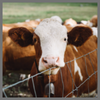
Our study dealt with strategies on how to reduce biases (inflation and level-bias) and improve a parameter related to accuracy (stability) of genomic predictions of breeding values that combine genotyped and non-genotyped animals, which are denoted as single-step genomic predictions.
Read more
-

Sep
15
Interpretive Summary: Feeding a high-energy finishing diet upon arrival to high-risk feedlot calves: effects on health, performance, ruminal pH, rumination, serum metabolites, and carcass traits
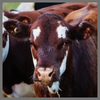
When high-risk cattle arrive at the feedlot, they have low feed consumption and a greater risk for disease because of stress, inflammation, and exposure to pathogens. Because of reduced feed consumption, newly arrived cattle may not be able to meet their energy requirement for growth during the first several weeks after feedlot arrival.
Read more
-

Sep
15
Interpretive Summary: Precision feeding of lactating sows: implementation and evaluation of a decision support system in farm conditions
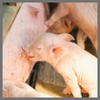
In lactating sows, nutrient requirements among individual animals vary greatly. With a single diet, lactating sows are likely to be either underfed, which results in body reserve mobilization, or overfed, which results in nutrient excretion.
Read more
-

Sep
08
Interpretive Summary: A preliminary exploration of the impact of experiential learning on animal science undergraduates’ perceptions of humane stunning and slaughter
.png?sfvrsn=1cf852d1_0)
It is essential to educate students about humane slaughter as it is a critical component of livestock production, particularly for animal science students who represent future stakeholders in agriculture. There is limited research about the effects of experiential learning on student comfort in participating in education regarding sensitive, yet important topics in the animal sciences.
Read more
-

Sep
08
Interpretive Summary: Frequency of maternal supplementation of energy and protein during late gestation modulates preweaning growth of their beef offspring
.png?sfvrsn=b2ff52d1_0)
Decreasing the frequency of protein and energy supplementation to beef cattle is often used to reduce labor and feeding costs. We hypothesized that reducing the frequency of protein and energy during third trimester of gestation of beef cows would not impact maternal performance but would be detrimental to offspring growth.
Read more
-

Sep
08
Interpretive Summary: Effects of adding potassium bicarbonate to diets with high or low crystalline lysine to influence dietary cation–anion difference on finishing pig growth performance
.png?sfvrsn=dbf852d1_0)
Potassium, fed as potassium bicarbonate (KHCO3) in this study, is essential for swine and is a key component of numerous physiological processes such as the maintenance of electrolyte balance, neuromuscular function. Feeding high levels of chloride anions, via crystalline lysine (L-Lys HCl) has been shown to negatively impact intake and growth performance of pigs.
Read more
-

Sep
08
Interpretive Summary: Effects of a Saccharomyces cerevisiae fermentation product-supplemented diet on circulating immune cells and oxidative stress markers of dogs
.png?sfvrsn=d6fe52d1_0)
Saccharomyces cerevisiae fermentation product (SCFP) is a yeast product containing bioactive fermentation metabolites, residual yeast cells, and yeast cell wall fragments. In this study, SCFP was investigated for its impacts on immune health, oxidative stress, and skin and hair coat health in dogs.
Read more
-

Sep
08
Interpretive Summary: Infographic: Effects of a Saccharomyces cerevisiae fermentation product-supplemented diet on circulating immune cells and oxidative stress markers in dogs
.png?sfvrsn=b1fe52d1_0)
The American Society of Animal Science and the Editors of the Journal of Animal Science invite you to have a look at the latest infographic and paper which explores how a fermentation product included in the diet of dogs may impact immune cells, oxidative stress/inflammation and skin and coat health.
Read more
 SepRethinking Methane from Animal Agriculture: ASAS Speaker Frank Mitloehner at EAAP
SepRethinking Methane from Animal Agriculture: ASAS Speaker Frank Mitloehner at EAAP SepEffective Nutritional Strategies to Mitigate Enteric Methane in Dairy Cattle: ASAS Member Alex Hristov at EAAP
SepEffective Nutritional Strategies to Mitigate Enteric Methane in Dairy Cattle: ASAS Member Alex Hristov at EAAP SepInterpretive Summary: Nitrogen excretion from beef cattle fed a wide range of diets compiled in an intercontinental dataset: a meta-analysis
SepInterpretive Summary: Nitrogen excretion from beef cattle fed a wide range of diets compiled in an intercontinental dataset: a meta-analysis.png?sfvrsn=e5f152d1_0) Ruminants play a key role in the food system because they can convert fiber-rich plants into highly nutritious food for humans. However, there is a growing concern about livestock production because of its negative environmental impact, mainly due to enteric methane (CH4) emissions but also as a result of N excretion leading to nitrate (NO3−) leaching and ammonia (NH3) and nitrous oxide (N2O) emissions.
Ruminants play a key role in the food system because they can convert fiber-rich plants into highly nutritious food for humans. However, there is a growing concern about livestock production because of its negative environmental impact, mainly due to enteric methane (CH4) emissions but also as a result of N excretion leading to nitrate (NO3−) leaching and ammonia (NH3) and nitrous oxide (N2O) emissions. SepInterpretive Summary: Substituting ryegrass-based pasture with graded levels of forage rape in the diet of lambs decreases methane emissions and increases propionate, succinate, and primary alcohols in the rumen
SepInterpretive Summary: Substituting ryegrass-based pasture with graded levels of forage rape in the diet of lambs decreases methane emissions and increases propionate, succinate, and primary alcohols in the rumen The methane yield (g methane/kg dry matter intake) was 34% lower in sheep fed 100% forage rape and 11% lower in sheep fed 75% forage rape compared to sheep fed 100% ryegrass-based pasture. Sheep fed 25% and 50% forage rape as part of their diet had similar methane yields to sheep fed 100% ryegrass pasture.
The methane yield (g methane/kg dry matter intake) was 34% lower in sheep fed 100% forage rape and 11% lower in sheep fed 75% forage rape compared to sheep fed 100% ryegrass-based pasture. Sheep fed 25% and 50% forage rape as part of their diet had similar methane yields to sheep fed 100% ryegrass pasture. SepInterpretive Summary: Economic analysis of biosecurity adoption in dairy farming: evidence from Ireland
SepInterpretive Summary: Economic analysis of biosecurity adoption in dairy farming: evidence from Ireland Given the significant negative impact of livestock disease outbreaks on animal and public health, preventing disease spread through biosecurity practices is important. In this article, we assessed the economic implications of the adoption of biosecurity practices on Irish dairy farms.
Given the significant negative impact of livestock disease outbreaks on animal and public health, preventing disease spread through biosecurity practices is important. In this article, we assessed the economic implications of the adoption of biosecurity practices on Irish dairy farms. SepInterpretive Summary: Transcriptome analysis reveals candidate genes of the synthesis of branched-chain fatty acids related to mutton flavor in the lamb liver using Allium mongolicum Regel extract
SepInterpretive Summary: Transcriptome analysis reveals candidate genes of the synthesis of branched-chain fatty acids related to mutton flavor in the lamb liver using Allium mongolicum Regel extract Mutton is characterized by a typical species-related flavor named “mutton flavor,” which is mainly associated with branched-chain fatty acids (BCFAs), such as 4-methyloctanoic acid, 4-ethyloctanoic acid, and 4-methylnonanoic acid. Previous studies demonstrated that Allium mongolicum Regel ethanol extract (AME) reduced the concentration of BCFAs in the muscle and adipose tissues of lambs.
Mutton is characterized by a typical species-related flavor named “mutton flavor,” which is mainly associated with branched-chain fatty acids (BCFAs), such as 4-methyloctanoic acid, 4-ethyloctanoic acid, and 4-methylnonanoic acid. Previous studies demonstrated that Allium mongolicum Regel ethanol extract (AME) reduced the concentration of BCFAs in the muscle and adipose tissues of lambs. SepInterpretive Summary: Copy number variation of ZNF280BY across eight sheep breeds and its association with testicular size of Hu sheep
SepInterpretive Summary: Copy number variation of ZNF280BY across eight sheep breeds and its association with testicular size of Hu sheep.png?sfvrsn=c0f152d1_0) The zinc finger protein 280B-like, Y-linked ZNF280BY is a bovid-specific Y chromosome gene, playing important roles in testicular development and male fertility. In this study, we found that the ovine ZNF280BY was highly expressed in the testis and significantly upregulated during testicular development.
The zinc finger protein 280B-like, Y-linked ZNF280BY is a bovid-specific Y chromosome gene, playing important roles in testicular development and male fertility. In this study, we found that the ovine ZNF280BY was highly expressed in the testis and significantly upregulated during testicular development. SepInterpretive Summary: The effects of heat stress on milk production and the grazing behavior of dairy Holstein cows milked by an automatic milking system
SepInterpretive Summary: The effects of heat stress on milk production and the grazing behavior of dairy Holstein cows milked by an automatic milking system.png?sfvrsn=9cf152d1_0) In higher temperature conditions, dairy cows under pasture-based automatic milking systems may experience heat stress, affecting their health and productive performance. In the present study, the relationships between heat stress, measured by the temperature–humidity index (THI), productive traits, and grazing behaviors were evaluated.
In higher temperature conditions, dairy cows under pasture-based automatic milking systems may experience heat stress, affecting their health and productive performance. In the present study, the relationships between heat stress, measured by the temperature–humidity index (THI), productive traits, and grazing behaviors were evaluated. SepInterpretive Summary: How copper can impact pig growth: comparing the effect of copper sulfate and monovalent copper oxide on oxidative status, inflammation, gene abundance, and microbial modulation as potential mechanisms of action
SepInterpretive Summary: How copper can impact pig growth: comparing the effect of copper sulfate and monovalent copper oxide on oxidative status, inflammation, gene abundance, and microbial modulation as potential mechanisms of action.png?sfvrsn=86f152d1_0) Copper is a nonrenewable mineral resource that is essential for all biological organisms. After banning the antibiotics, copper has received considerable attention due to its antimicrobial properties that improve performance in animals when fed over the minimum requirement.
Copper is a nonrenewable mineral resource that is essential for all biological organisms. After banning the antibiotics, copper has received considerable attention due to its antimicrobial properties that improve performance in animals when fed over the minimum requirement. SepInterpretive Summary: Acute stress deteriorates breast meat quality of Ross 308 broiler chickens by inducing redox imbalance and mitochondrial dysfunction
SepInterpretive Summary: Acute stress deteriorates breast meat quality of Ross 308 broiler chickens by inducing redox imbalance and mitochondrial dysfunction Preslaughter acute stress can cause physiological and metabolic disorders of broilers and lead to deterioration of meat quality and high incidence of pale, soft, and exudative (PSE)-like meat, which block the development of broiler industry. Acute stress-induced imbalance of redox status and insufficient energy supply are important reasons for meat quality reduction.
Preslaughter acute stress can cause physiological and metabolic disorders of broilers and lead to deterioration of meat quality and high incidence of pale, soft, and exudative (PSE)-like meat, which block the development of broiler industry. Acute stress-induced imbalance of redox status and insufficient energy supply are important reasons for meat quality reduction. SepInterpretive Summary: Weak genotype x environment interaction suggests that measuring scrotal circumference at 12 and 18 mo of age is helpful to select precocious Brahman cattle
SepInterpretive Summary: Weak genotype x environment interaction suggests that measuring scrotal circumference at 12 and 18 mo of age is helpful to select precocious Brahman cattle Beef production systems rely on efficient cow-calf operations, that is, farms where the cow herd has a high level of fertility and pregnancies are common. Bull fertility also plays an important role in terms of pregnancy rates.
Beef production systems rely on efficient cow-calf operations, that is, farms where the cow herd has a high level of fertility and pregnancies are common. Bull fertility also plays an important role in terms of pregnancy rates. SepInterpretive Summary: Genetic architecture of a composite beef cattle population
SepInterpretive Summary: Genetic architecture of a composite beef cattle population Composite breeds are commonly used in the U.S. beef industry since they provide producers with benefits such as breed complementarity and retained heterosis. However, cattle composite genomes are not well characterized.
Composite breeds are commonly used in the U.S. beef industry since they provide producers with benefits such as breed complementarity and retained heterosis. However, cattle composite genomes are not well characterized. SepInterpretive Summary: Correcting for base-population differences and unknown parent groups in single-step genomic predictions of Norwegian Red cattle
SepInterpretive Summary: Correcting for base-population differences and unknown parent groups in single-step genomic predictions of Norwegian Red cattle Our study dealt with strategies on how to reduce biases (inflation and level-bias) and improve a parameter related to accuracy (stability) of genomic predictions of breeding values that combine genotyped and non-genotyped animals, which are denoted as single-step genomic predictions.
Our study dealt with strategies on how to reduce biases (inflation and level-bias) and improve a parameter related to accuracy (stability) of genomic predictions of breeding values that combine genotyped and non-genotyped animals, which are denoted as single-step genomic predictions. SepInterpretive Summary: Feeding a high-energy finishing diet upon arrival to high-risk feedlot calves: effects on health, performance, ruminal pH, rumination, serum metabolites, and carcass traits
SepInterpretive Summary: Feeding a high-energy finishing diet upon arrival to high-risk feedlot calves: effects on health, performance, ruminal pH, rumination, serum metabolites, and carcass traits When high-risk cattle arrive at the feedlot, they have low feed consumption and a greater risk for disease because of stress, inflammation, and exposure to pathogens. Because of reduced feed consumption, newly arrived cattle may not be able to meet their energy requirement for growth during the first several weeks after feedlot arrival.
When high-risk cattle arrive at the feedlot, they have low feed consumption and a greater risk for disease because of stress, inflammation, and exposure to pathogens. Because of reduced feed consumption, newly arrived cattle may not be able to meet their energy requirement for growth during the first several weeks after feedlot arrival. SepInterpretive Summary: Precision feeding of lactating sows: implementation and evaluation of a decision support system in farm conditions
SepInterpretive Summary: Precision feeding of lactating sows: implementation and evaluation of a decision support system in farm conditions In lactating sows, nutrient requirements among individual animals vary greatly. With a single diet, lactating sows are likely to be either underfed, which results in body reserve mobilization, or overfed, which results in nutrient excretion.
In lactating sows, nutrient requirements among individual animals vary greatly. With a single diet, lactating sows are likely to be either underfed, which results in body reserve mobilization, or overfed, which results in nutrient excretion. SepInterpretive Summary: A preliminary exploration of the impact of experiential learning on animal science undergraduates’ perceptions of humane stunning and slaughter
SepInterpretive Summary: A preliminary exploration of the impact of experiential learning on animal science undergraduates’ perceptions of humane stunning and slaughter.png?sfvrsn=1cf852d1_0) It is essential to educate students about humane slaughter as it is a critical component of livestock production, particularly for animal science students who represent future stakeholders in agriculture. There is limited research about the effects of experiential learning on student comfort in participating in education regarding sensitive, yet important topics in the animal sciences.
It is essential to educate students about humane slaughter as it is a critical component of livestock production, particularly for animal science students who represent future stakeholders in agriculture. There is limited research about the effects of experiential learning on student comfort in participating in education regarding sensitive, yet important topics in the animal sciences. SepInterpretive Summary: Frequency of maternal supplementation of energy and protein during late gestation modulates preweaning growth of their beef offspring
SepInterpretive Summary: Frequency of maternal supplementation of energy and protein during late gestation modulates preweaning growth of their beef offspring.png?sfvrsn=b2ff52d1_0) Decreasing the frequency of protein and energy supplementation to beef cattle is often used to reduce labor and feeding costs. We hypothesized that reducing the frequency of protein and energy during third trimester of gestation of beef cows would not impact maternal performance but would be detrimental to offspring growth.
Decreasing the frequency of protein and energy supplementation to beef cattle is often used to reduce labor and feeding costs. We hypothesized that reducing the frequency of protein and energy during third trimester of gestation of beef cows would not impact maternal performance but would be detrimental to offspring growth. SepInterpretive Summary: Effects of adding potassium bicarbonate to diets with high or low crystalline lysine to influence dietary cation–anion difference on finishing pig growth performance
SepInterpretive Summary: Effects of adding potassium bicarbonate to diets with high or low crystalline lysine to influence dietary cation–anion difference on finishing pig growth performance.png?sfvrsn=dbf852d1_0) Potassium, fed as potassium bicarbonate (KHCO3) in this study, is essential for swine and is a key component of numerous physiological processes such as the maintenance of electrolyte balance, neuromuscular function. Feeding high levels of chloride anions, via crystalline lysine (L-Lys HCl) has been shown to negatively impact intake and growth performance of pigs.
Potassium, fed as potassium bicarbonate (KHCO3) in this study, is essential for swine and is a key component of numerous physiological processes such as the maintenance of electrolyte balance, neuromuscular function. Feeding high levels of chloride anions, via crystalline lysine (L-Lys HCl) has been shown to negatively impact intake and growth performance of pigs. SepInterpretive Summary: Effects of a Saccharomyces cerevisiae fermentation product-supplemented diet on circulating immune cells and oxidative stress markers of dogs
SepInterpretive Summary: Effects of a Saccharomyces cerevisiae fermentation product-supplemented diet on circulating immune cells and oxidative stress markers of dogs.png?sfvrsn=d6fe52d1_0) Saccharomyces cerevisiae fermentation product (SCFP) is a yeast product containing bioactive fermentation metabolites, residual yeast cells, and yeast cell wall fragments. In this study, SCFP was investigated for its impacts on immune health, oxidative stress, and skin and hair coat health in dogs.
Saccharomyces cerevisiae fermentation product (SCFP) is a yeast product containing bioactive fermentation metabolites, residual yeast cells, and yeast cell wall fragments. In this study, SCFP was investigated for its impacts on immune health, oxidative stress, and skin and hair coat health in dogs. SepInterpretive Summary: Infographic: Effects of a Saccharomyces cerevisiae fermentation product-supplemented diet on circulating immune cells and oxidative stress markers in dogs
SepInterpretive Summary: Infographic: Effects of a Saccharomyces cerevisiae fermentation product-supplemented diet on circulating immune cells and oxidative stress markers in dogs.png?sfvrsn=b1fe52d1_0) The American Society of Animal Science and the Editors of the Journal of Animal Science invite you to have a look at the latest infographic and paper which explores how a fermentation product included in the diet of dogs may impact immune cells, oxidative stress/inflammation and skin and coat health.
The American Society of Animal Science and the Editors of the Journal of Animal Science invite you to have a look at the latest infographic and paper which explores how a fermentation product included in the diet of dogs may impact immune cells, oxidative stress/inflammation and skin and coat health.



